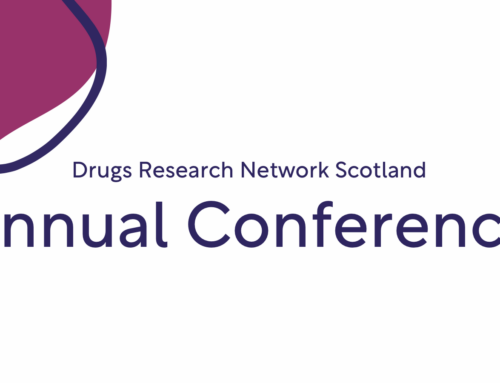The postcode lottery of antenatal care for women who use opioids in pregnancy in Scotland

Blog by Dr. Louise Marryat February 2024
Do pregnant women who use opioids get the same level of care across the country? This was a question we tried to answer in a recently published study. We spoke to thirteen health and social care professionals (for example, midwives, neonatal nurses, obstetricians, and social workers) in the largest Health Boards: NHS Greater Glasgow and Clyde (NHS GGC), NHS Lothian and NHS Tayside. Our main aim was to understand the care models in each Board and the strengths and challenges of each of them.
Variation in care pathways and inclusion criteria
Each Board had an enhanced programme of antenatal care provision for women with substance use and/or other challenges, such as mental health difficulties. Pathways varied in how holistic they were, with some offering a ‘one-stop shop’ of services, including for example, drug and alcohol services, mental health support, social work, and support with gaining employment. Others were only focussed on antenatal health care. We found examples like the New Beginnings service in Tayside, which was only available to women in Dundee City, with no specialist provision offered to women living outside the city. There were other examples where eligibility was based on whether it was the first baby/only baby at home, or the substance use was deemed ‘chaotic’ or ‘problematic’. This has the potential to disadvantage some women in some areas, with the specialist care only available to women who fulfil the criteria of their local service. Additionally, services in NHS GGC, for example, are led by healthcare professionals, Lothian is led by social work. And whilst some services, such as Lothian, continue support for two years after birth, and include support for the partner of the woman, others offered more focussed support in the antenatal period only, and just focussing on the birth mother.
Despite the differences in models of care, similar strengths and challenges were often described. Strengths included having higher levels of care (e.g. more appointments), continuity of care with one midwife and time to develop a therapeutic relationship with the women. Participants thought this encouraged women to be more open around drug use and other challenges. Having more resource also enabled healthcare practitioners to seek out women where they were if they had not come in for appointments, thus ensuring that they received antenatal care where possible. The healthcare professionals working within the specialist pathways also felt they were able to build up expertise in working with women who used drugs, which those outside the pathway reported lacking. On the other hand, participants reported challenges including a lack of appropriate psychological support available to women and engaging women in the services offered.
Challenges of conducting research in the post-pandemic era
This study was challenging to carry out. It was funded before the Covid-19 pandemic and we conducted interviews after periods of lockdown. This meant that health and social care staff were under a lot of pressure which made it difficult to carry out the interviews. Interviews were often shorter due to time pressures, and, despite our best efforts, there were some groups of professionals we could not to speak with, including drug and alcohol service professionals. As the study was deemed to be ‘evaluation’ rather than ‘research’ we did not require NHS ethical approval, however instead we had to navigate individual Health Board systems. Some of which were easier than others to follow. Indeed, a fourth Health Board, which we had hoped to research, proved impossible to access!
The opportunities for improving outcomes through antenatal support
The antenatal period is particularly important for health services to engage with pregnant women to improve the health outcomes for both mother and baby, particularly for women with substance use. This can only be done through high quality, well-resourced multi-agency provision. WHO Guidelines clearly recommend the provision of holistic and personalised care for pregnant women who use substances, including tailored psychological treatments and social supports. Whilst much of this appears to be happening in the areas we studied, there remains something of a postcode lottery of access to specialist services for pregnant women who use drugs. We therefore have a long way to go to reach the WHO aspirations for women’s care.
In Scotland, further research is needed to explore the views of women who use opioids and barriers to accessing specialist antenatal care. We also need to explore care delivery in rural and remote communities, which may have their own, particular, challenges.
Contact: Dr Louise Marryat lmarryat001@dundee.ac.uk
Bio: Louise Marryat is a sociologist and researcher in the Substance Use Research Group, School of Health Sciences, at the University of Dundee. Louise is interested in the pathways that children take, and how aspects such as the environment that children grow up in affect this. Louise has an ESRC New Investigator Grant which includes this qualitative project and a larger quantitative project using routinely-collected health and social care data to explore the impact of exposure to opioids in pregnancy on preschool health and developmental outcomes. In 2024 Louise will start a UKRI Future Leaders Fellowship, which will extend this research to explore health, education and justice outcomes for children exposed to opioids up to age 16, and to look at differences in outcomes internationally.
Declaration of funding and associations. This research is funded by the ESRC (ES/T015721/1). The authors have no conflicts of interest to declare.
Access to the paper (freely available): https://link.springer.com/article/10.1186/s12884-024-06265-w






